After two weeks of travelling through beautiful Georgia, my time in the Caucasian country was coming to an end. On our way back to the country’s capital, Tbilisi, from the mountains of Svaneti, my travel buddy and I stopped for one last adventure, in the small town of Mtskheta.
Mtskheta is one of the oldest towns in Georgia as well as one of the oldest continuously inhabited places in the world. It’s located approximately 20 kilometres north of Tbilisi, at the confluence of the Kura and Aragvi rivers. Mtskheta was the ancient capital of Kartli, the East Georgian Kingdom, from the 3rd century BC to the 5th century AD, and in 337 AD, it was the location where Christianity was proclaimed the official religion of Georgia. Even after Mtskheta lost its status as the capital in the 6th century AD, it continued to retain its role as the most important cultural and spiritual centre of Georgia. Today, Mtskheta is still the headquarters of the Georgian Orthodox and Apostolic Church, and is known as the “Holy City”.
Due to Mtskheta’s significance and its well-preserved ancient churches and monasteries, the town became a UNESCO World Heritage Site in 1994. Its most important Christian structures consist of the 6th-century Jvari Monastery, the Svetitstkhoveli Cathedral from the 11th century and the Samtavro Monastery from the 4th century.
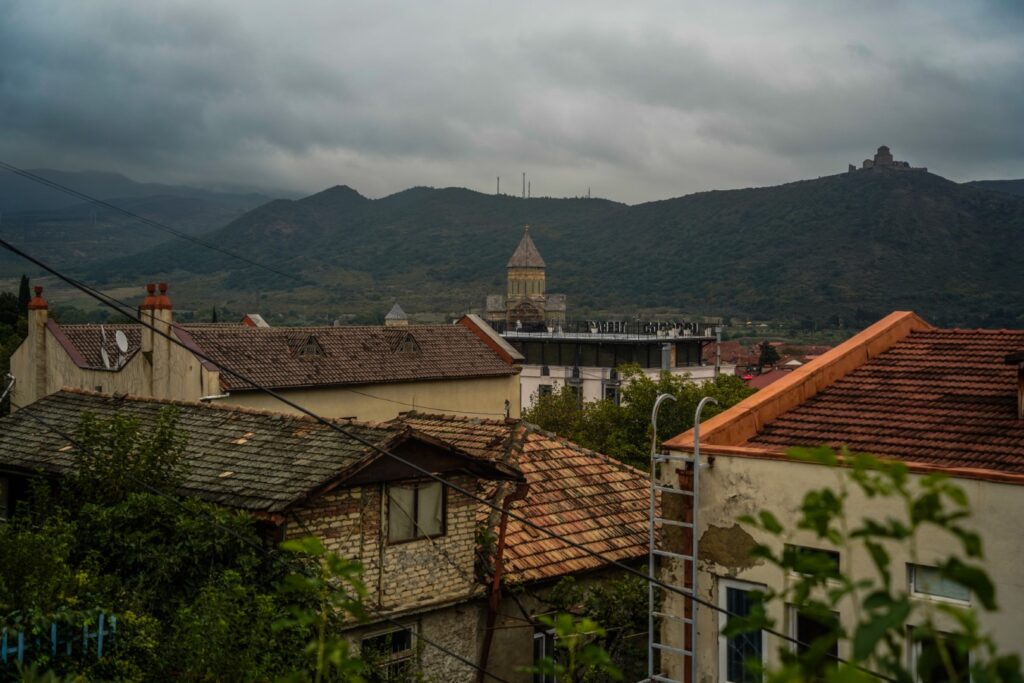
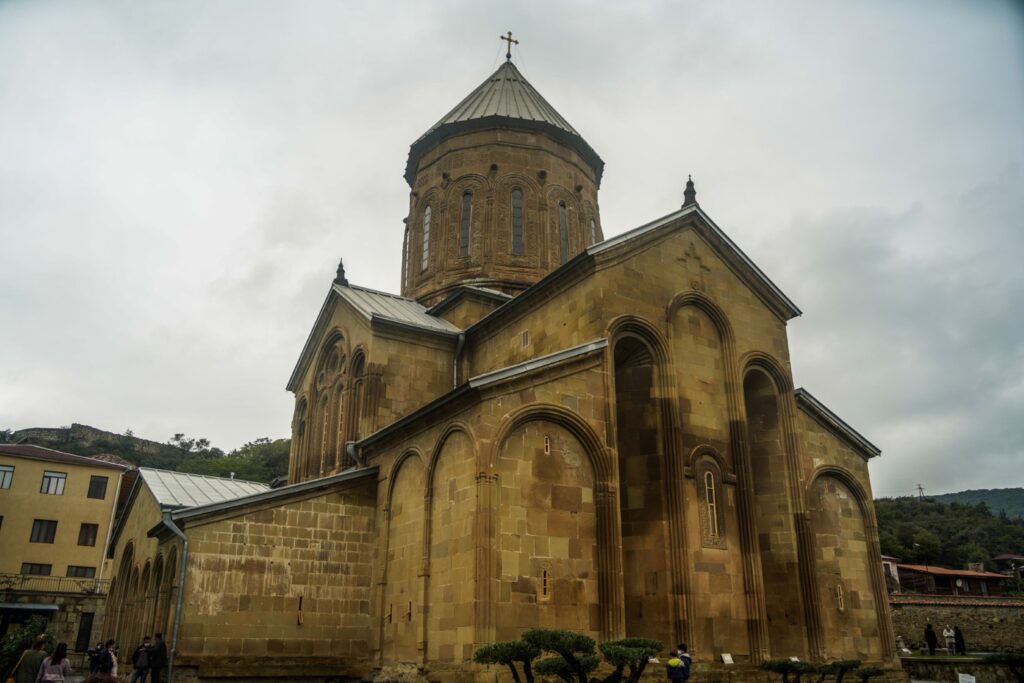
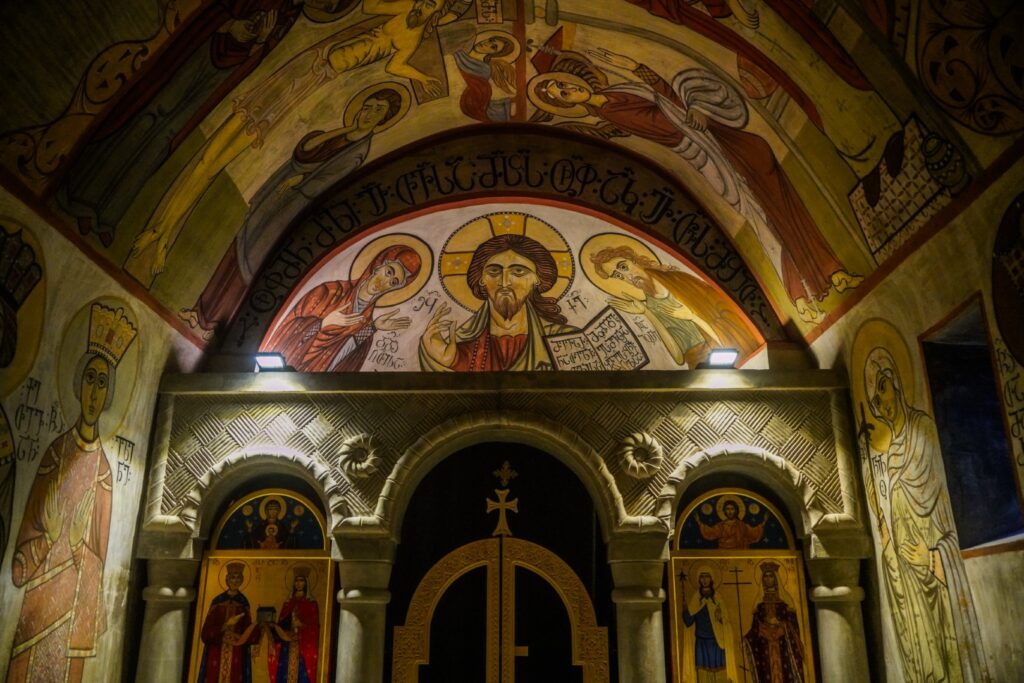
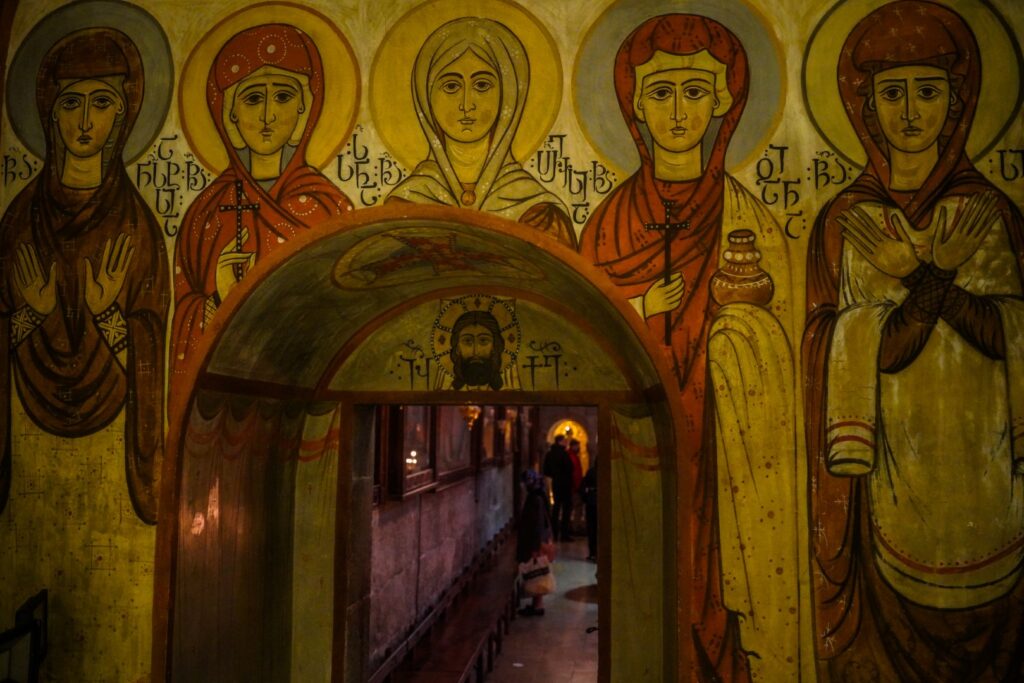
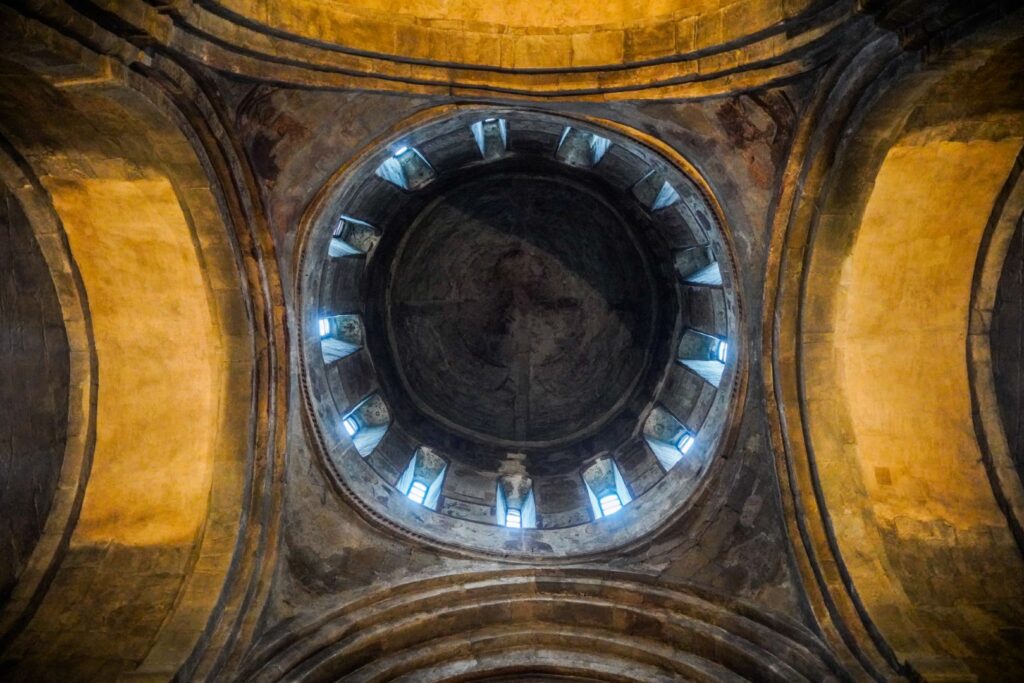
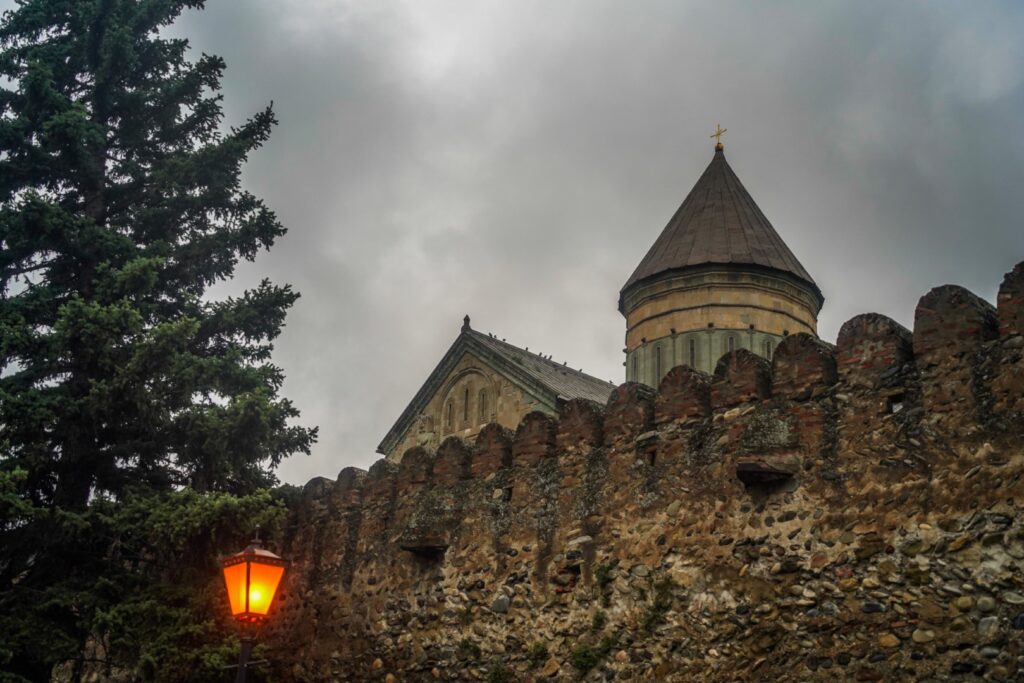
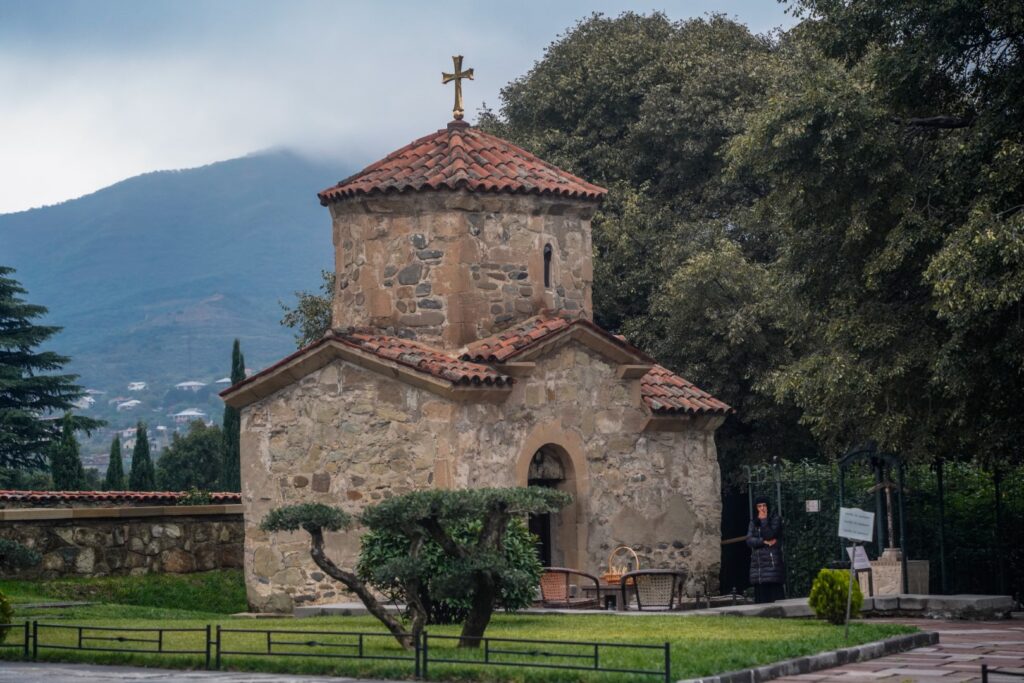
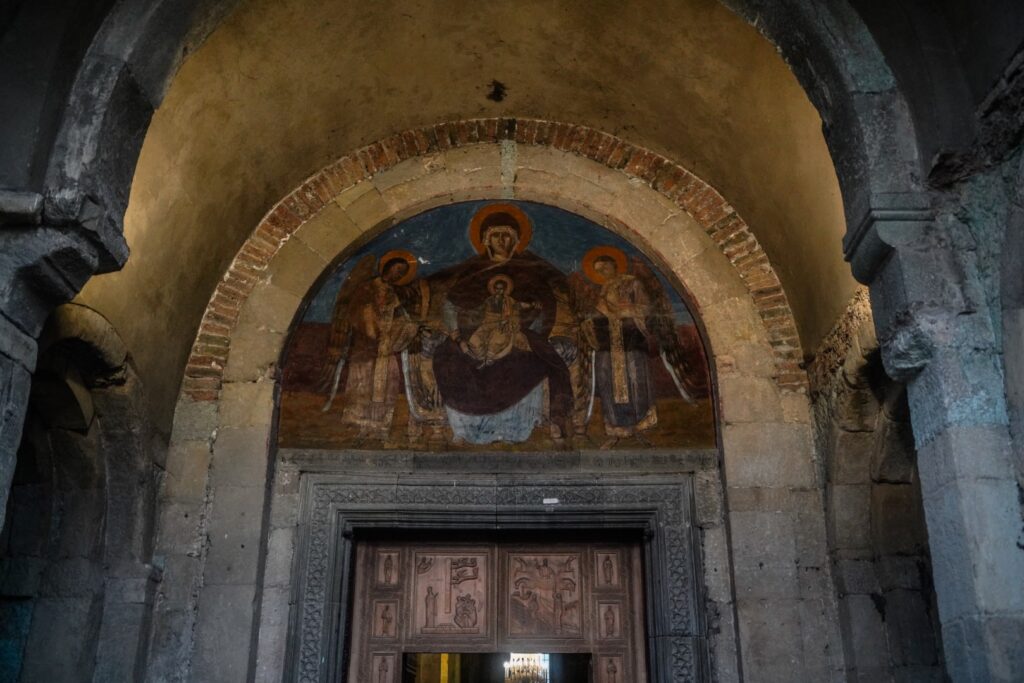
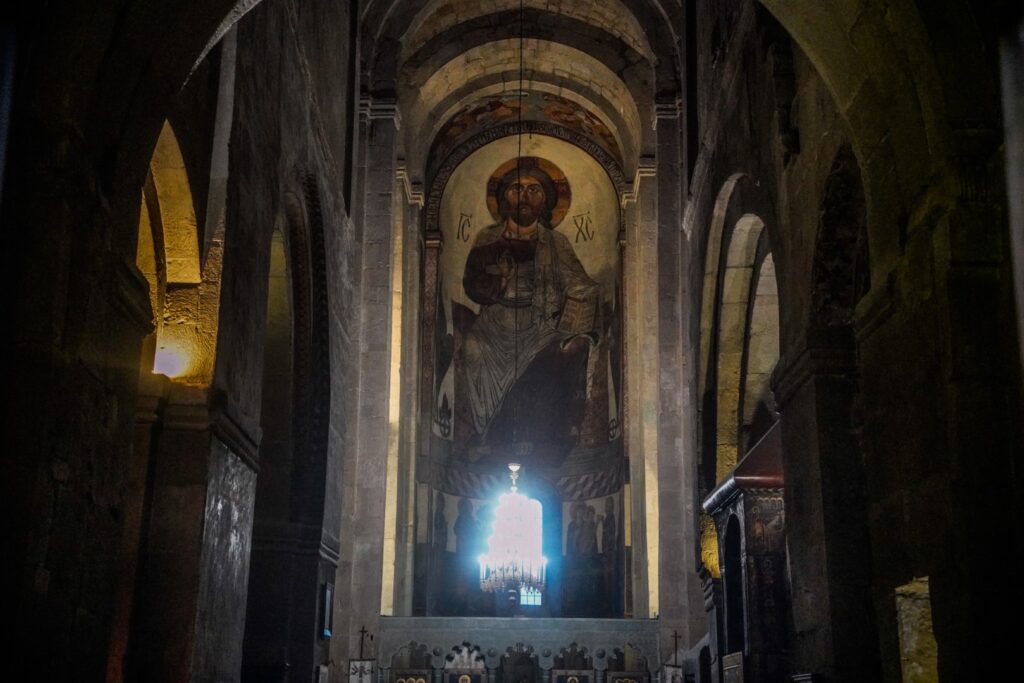
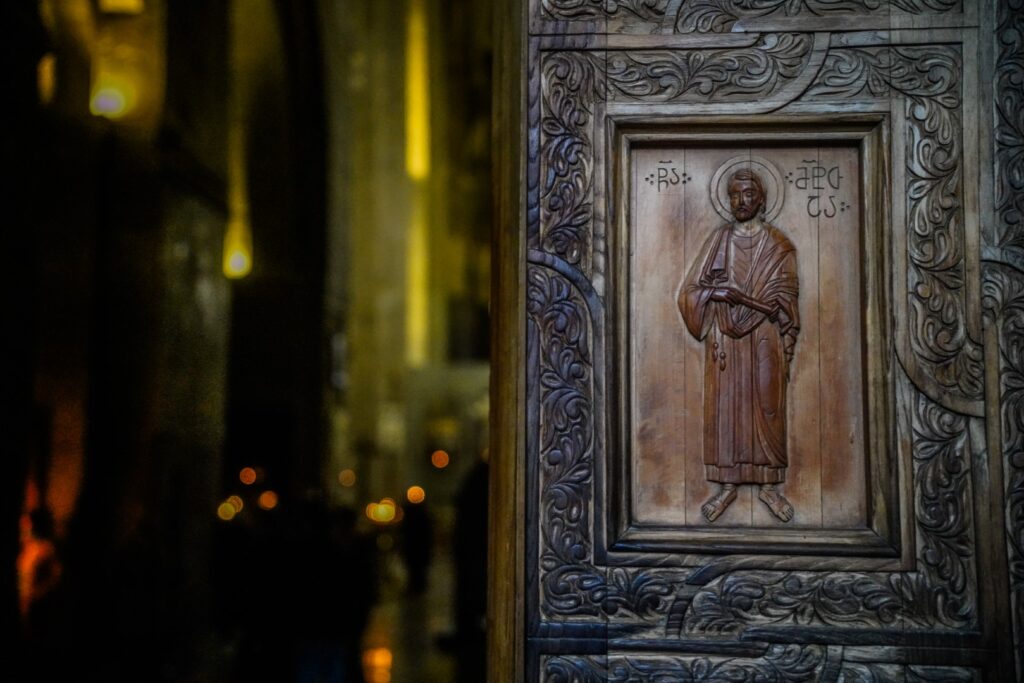
We arrived in Mtskheta in the late afternoon and spent the last daylight hours exploring the town centre with the Samtavro Monastery and the Svetitstkhoveli Cathedral, both of which have remains of elaborate wall paintings and rich sculpted decorations.
Next, we wanted to catch a cab to Jvari Monastery, which is located on a rocky hilltop above the town. It is known as the most sacred place in Georgia, and it’s also one of the rare cases of an Early Medieval Georgian church that has survived almost unchanged to the present day!
In the attempt to walk out to the road to catch a cab, we got a wee bit lost. We ended up walking through dense thorny bushes and discovered seemingly-abandoned buildings under a bridge across the Aragvi river. But we also found some beautiful views as day turned to night.
Unfortunately, this little detour meant that we didn’t reach the monastery before darkness. We did eventually make it to the road and found a cab that took us up to the monastery. It was closed but still incredible to see as it was lit up in the dark. The view of the town was especially gorgeous, all lit up in the dark valley below.

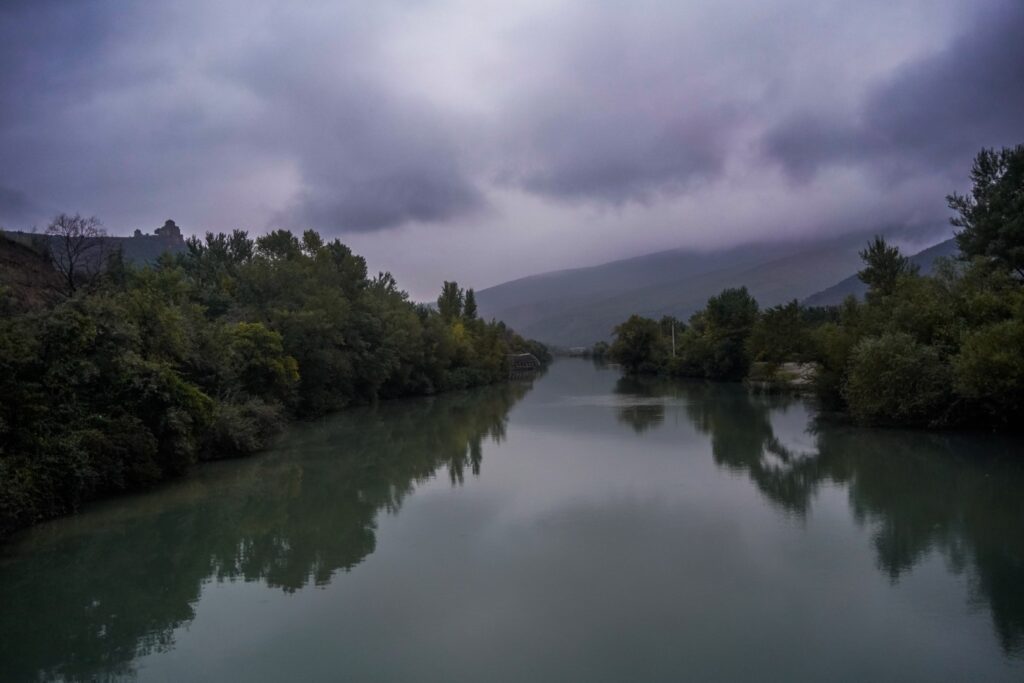
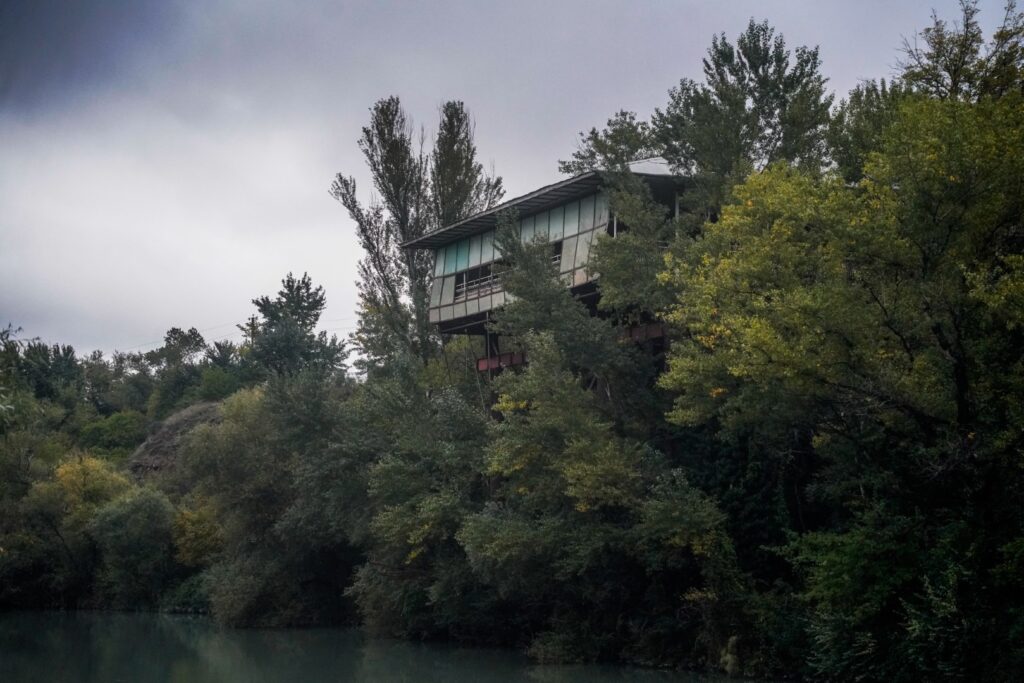
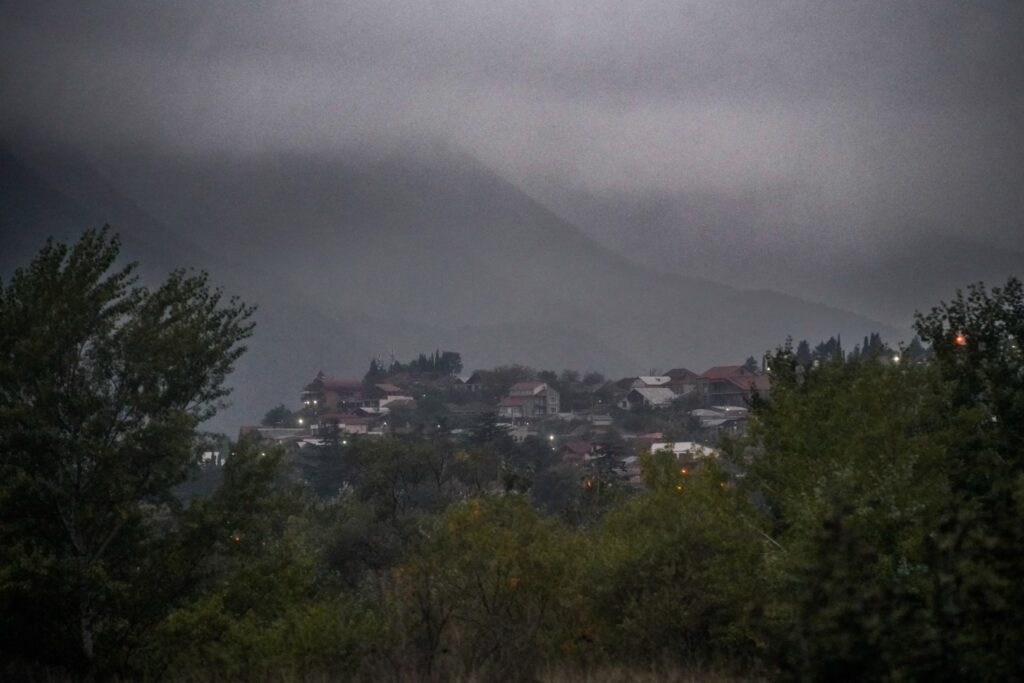
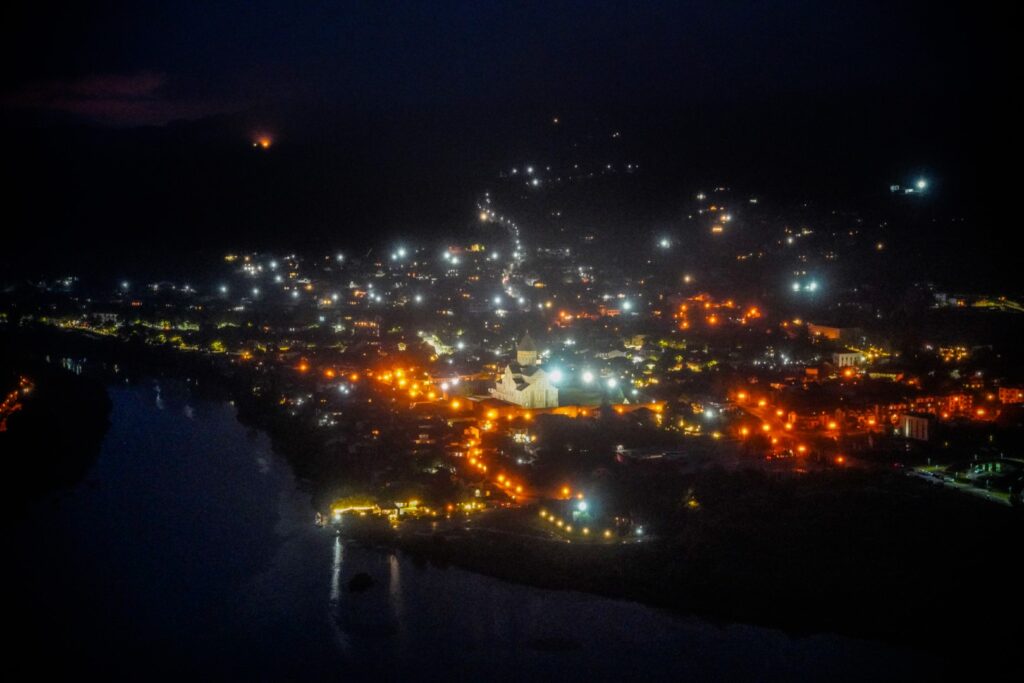
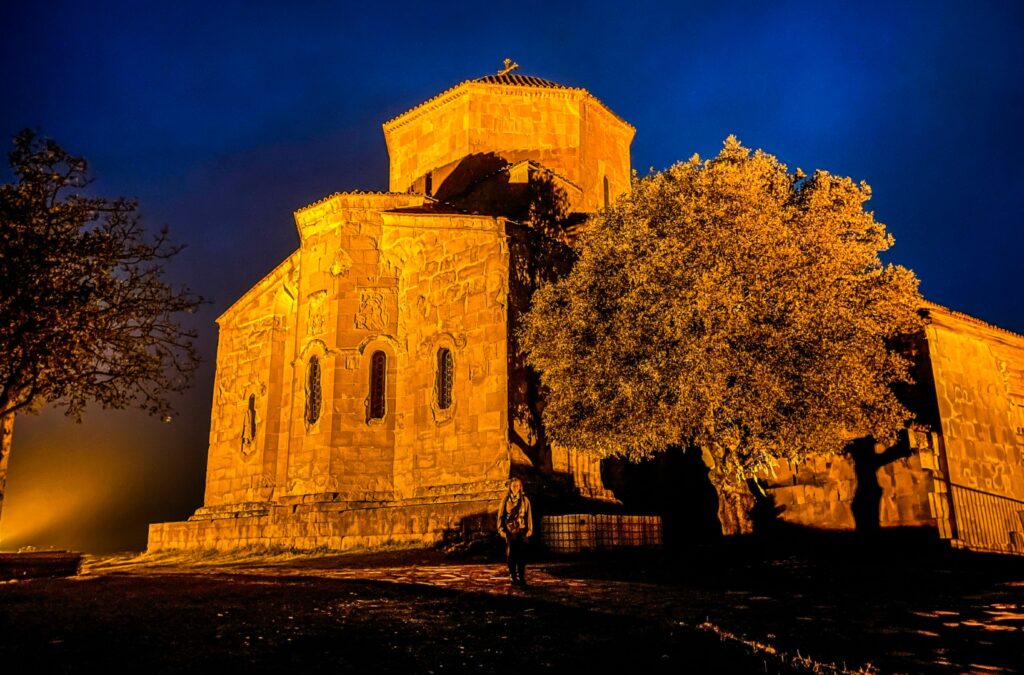
After our night-time monastery visit, we took the same cab back to Tbilisi and I spent my last Georgian night on the rooftop terrace at Envoy Hostel. Then it was time to leave the country and head to Yerevan in Armenia for my final adventure on this trip of a lifetime. Stay tuned!
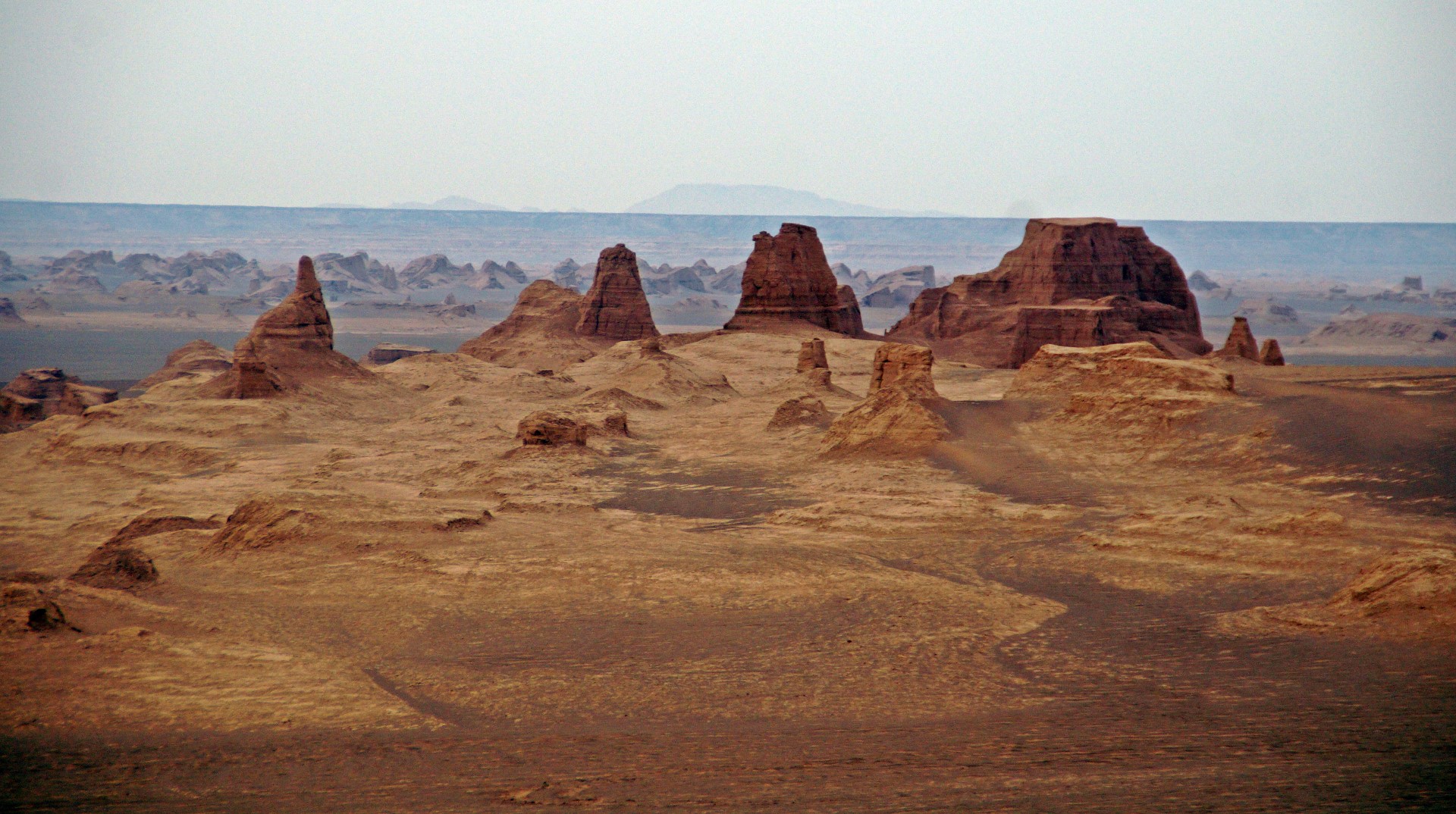
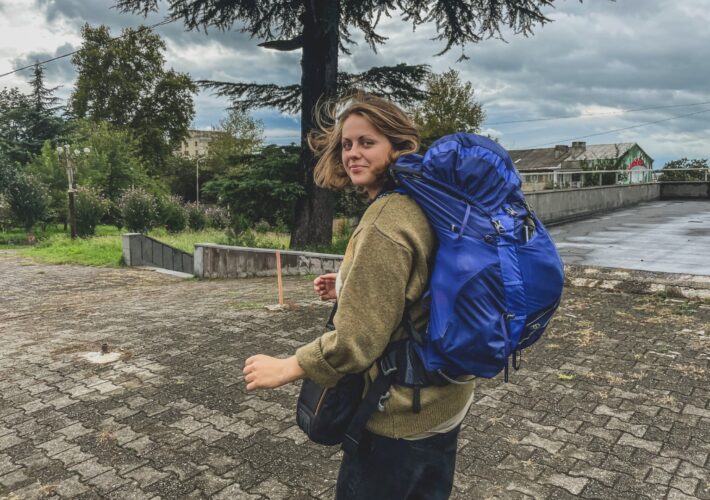
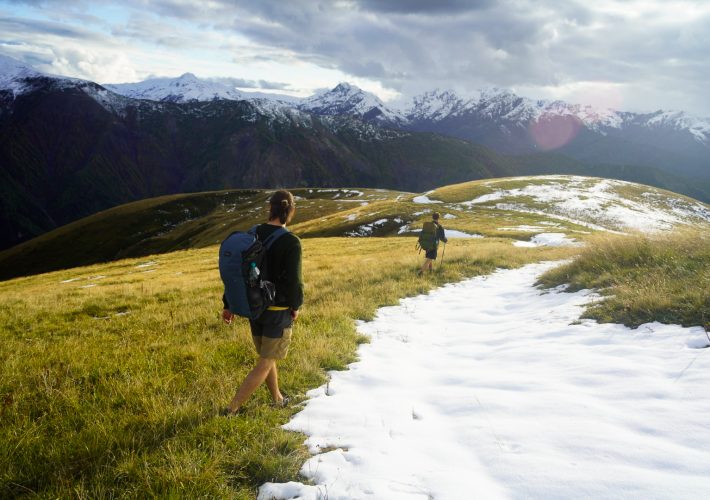
Leave a Comment